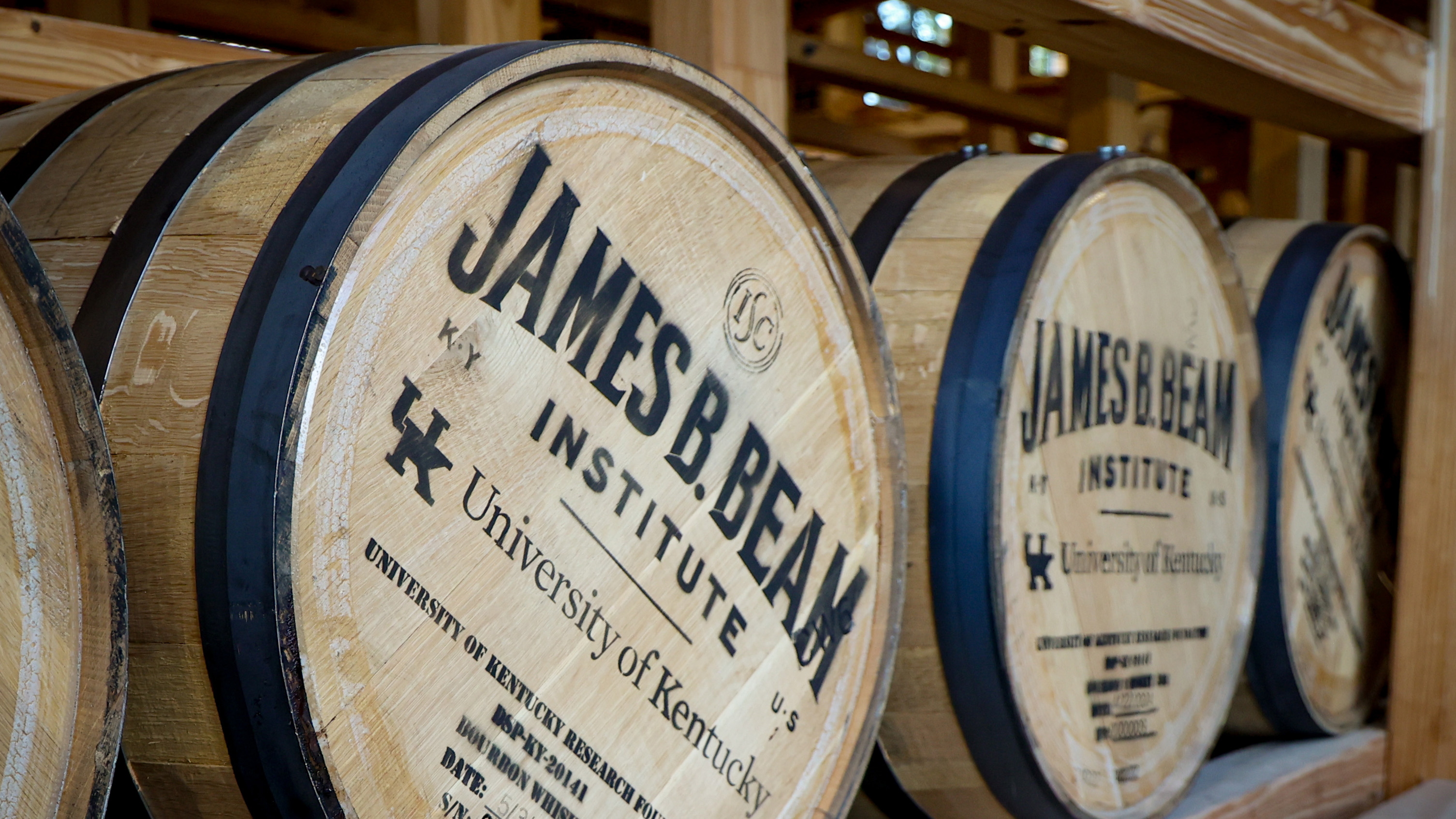University of Kentucky Beam Institute to demonstrate hydrogen-fueled spirit production
University of Kentucky Beam Institute to demonstrate hydrogen-fueled spirit production


The University of Kentucky James B. Beam Institute for Kentucky Spirits (JBBI) and UK Center for Applied Energy Research (CAER) have partnered with the Kentucky Energy and Environment Cabinet (EEC) and the State Energy Program to make the future of bourbon production more sustainable.
The project, titled “Kentucky Distilled Spirits Industrial Decarbonization and Sustainability,” and funded by the EEC, will allow UK distillers to co-fire natural gas with hydrogen to power the boilers. In a traditional distillery process, one of the first steps is using natural gas to create steam. Using hydrogen in this step will reduce the amount of natural gas used, an important step towards decarbonization.
“As more and more distilleries pop up in Kentucky, there is a higher demand for our rich natural resources,” said Seth DeBolt, JBBI director and principal investigator on the project. “This project is a brainchild of the EEC, and the James B. Beam Institute for Kentucky Spirits is a perfect location to demonstrate a decarbonized feedstock like hydrogen and see how co-firing influences all aspects of the process.”
The results of the project will be unclear until the hydrogen-made spirit is aged in the on-site barrel house at JBBI for at least four years. During that time, the team will carefully report any changes in the process, in the flavor of the newly made spirit and in the matured bourbon. Kentucky has long been a leader in energy, and this project will be the first of its kind nationally.
Executive Director of the Office of Energy Policy at the Kentucky Energy and Environment Cabinet Kenya Stump said this project supports the EEC’s mission of supporting innovation in industry while also protecting and improving the environment.
“Team Kentucky’s energy strategy emphasizes an ‘all of the above approach’ to fuels in Kentucky while supporting economic development,” Stump said. “Hydrogen is an emerging fuel with the potential to lower emissions, drive new investment, and support our businesses’ sustainability efforts. This is why we are looking to work with our spirits industry on how hydrogen can help them meet their goals.”
Phase two of the project involves agrivoltaics, or the use of the same plot of land for both traditional agriculture and solar energy generation. DeBolt and team will pilot a system with a one-megawatt array of solar panels, while growing raw distillery materials like wheat, rye and corn on the same farm.
“Large-scale solar is growing, and if we can unlock a pathway to support both renewable generation and crop production for our spirits industry, then that is a win-win,” Stump said. “This project will help us know if we can achieve solar-grown bourbon.”
According to DeBolt, decarbonization of the bourbon industry is a large-scale endeavor that will require significant advances throughout the manufacturing and production processes.
“Developing new technologies to help Kentucky’s bourbon industry become more energy efficient is quite a challenge,” said Rodney Andrews, Director of the UK Center for Applied Energy Research. “What makes UK such a unique place is that we have dynamic expertise on one campus, which affords us the opportunity to build collaborative, multidisciplinary teams to solve those challenges.”
The James B. Beam Institute for Kentucky Spirits resides within the University of Kentucky Martin-Gatton College of Agriculture, Food and Environment as a result of the university’s partnership with Suntory Global Spirits. For more information, visit https://beaminstitute.ca.uky.edu/.
###
Writer: Grace Sowards, grace.sowards@uky.edu
The Martin-Gatton College of Agriculture, Food and Environment is an Equal Opportunity Organization with respect to education and employment and authorization to provide research, education information and other services only to individuals and institutions that function without regard to economic or social status and will not discriminate on the basis of race, color, ethnic origin, national origin, creed, religion, political belief, sex, sexual orientation, gender identity, gender expression, pregnancy, marital status, genetic information, age, veteran status, physical or mental disability or reprisal or retaliation for prior civil rights activity.
Beam Institute